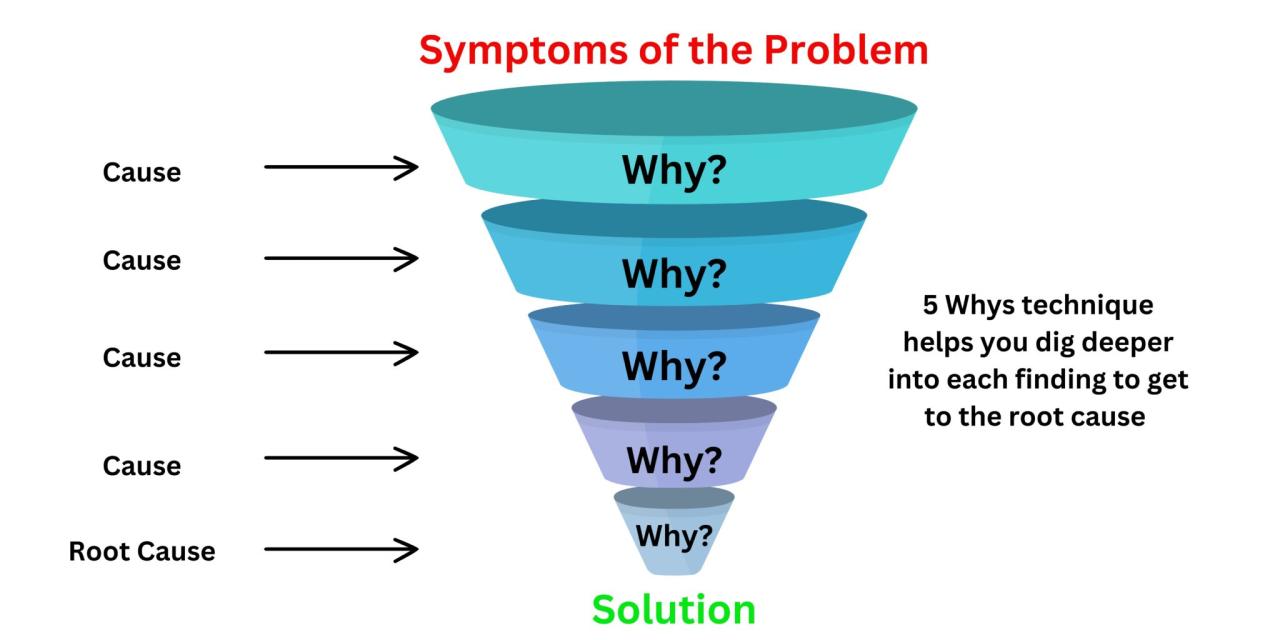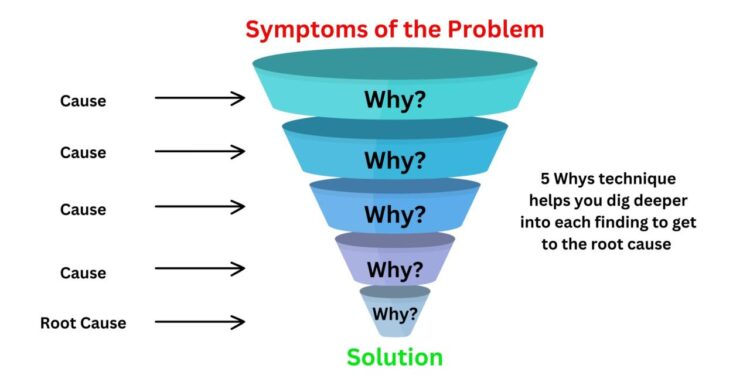Why You’re Still Living Paycheck to Paycheck is a reality many face in today’s fast-paced world. It often stems from a combination of psychological factors and financial habits that keep individuals trapped in a cycle of constant struggle. Understanding these underlying behaviors is crucial to breaking free from this pattern and achieving financial stability.
The journey to financial independence begins with recognizing the emotional triggers that lead to impulsive spending and poor budgeting. By exploring effective financial planning, budgeting techniques, and income considerations, we can uncover pathways to not just survive but thrive financially.
Understanding Financial Behavior
Many individuals find themselves in a cycle of living paycheck to paycheck, often without a clear understanding of the underlying psychological behaviors driving this pattern. Factors such as emotional spending, lack of financial education, and ingrained habits contribute to this state of financial instability. By examining these behaviors, individuals can begin to break the cycle and move toward a more secure financial future.
A significant psychological aspect influencing financial behavior is the relationship between emotions and spending. Individuals may engage in impulsive purchases as a means to cope with stress, anxiety, or even boredom. This emotional spending can create a temporary sense of relief but ultimately leads to financial distress. Additionally, many people lack the necessary financial education to make informed decisions about their money, which can hinder their ability to save effectively.
Psychological Factors Contributing to Financial Instability
Understanding the psychological factors at play can help clarify why certain financial habits are formed. The following points highlight key elements that contribute to living paycheck to paycheck:
- Fear of Missing Out (FOMO): This social phenomenon often leads individuals to make unnecessary purchases to feel included or keep up with peers, exacerbating financial strain.
- Instant Gratification: The desire for immediate satisfaction can result in impulsive spending rather than prioritizing long-term financial goals, impacting savings negatively.
- Low Financial Literacy: A lack of understanding regarding budgeting, saving, and investing can lead to poor financial decision-making, reinforcing a cycle of financial instability.
- Emotional Triggers: Triggers such as stress or low self-esteem can lead individuals to seek comfort through shopping, often leading to regret and further financial challenges.
Common Financial Habits Preventing Savings, Why You’re Still Living Paycheck to Paycheck
Several habits can prevent individuals from achieving financial stability and savings. Recognizing these habits is crucial for making necessary changes:
- Living Beyond Means: Many individuals spend more than their income allows, often financing their lifestyle through credit, which leads to debt accumulation.
- Lack of Budgeting: Not having a clear budget often results in overspending and failing to allocate funds toward savings or emergencies.
- Neglecting Emergency Funds: Individuals often overlook the importance of having an emergency fund, which can lead to financial distress when unexpected expenses arise.
- Impulse Buying: Engaging in spontaneous purchases without considering the impact on financial stability can deplete funds needed for essential expenses.
Emotional Triggers Leading to Impulsive Spending
Understanding emotional triggers is crucial for addressing impulsive spending behaviors. Certain feelings often prompt individuals to make unplanned purchases. Here are some common emotional triggers:
- Stress: Many turn to shopping as a coping mechanism during stressful periods, creating a cycle of temporary relief followed by financial regret.
- Boredom: Shopping can serve as a form of entertainment for some, leading to unnecessary spending that does not contribute to financial goals.
- Low Self-Worth: Individuals may buy items to boost self-esteem, resulting in financial choices that do not align with their long-term interests.
- Social Influence: The desire to impress friends or family can lead to spending beyond one’s means, often resulting in long-term financial consequences.
Budgeting and Financial Planning
Creating a personal budget is essential for anyone looking to gain control over their finances. A well-crafted budget helps you understand where your money is going and allows you to make informed decisions about spending, saving, and investing. The following sections will provide you with a step-by-step guide to creating a successful budget, methods for tracking your expenses, and techniques for setting and prioritizing your financial goals effectively.
Step-by-Step Guide to Creating a Personal Budget
Establishing a personal budget begins with gathering your financial information and setting clear objectives. This process can be broken down into manageable steps:
- Calculate Your Income: Document all sources of monthly income, including salary, bonuses, and any side hustles. Your total monthly income forms the foundation of your budget.
- List Your Expenses: Categorize your monthly expenses into fixed (rent, loans) and variable (groceries, entertainment) costs. Understanding these expenses is crucial for effective budgeting.
- Identify Needs vs. Wants: Distinguish between essential expenses and discretionary spending. This will help you prioritize your spending and make adjustments where necessary.
- Create Budget Categories: Allocate your income to each category based on the importance and amount. A common framework is the 50/30/20 rule, where 50% of your income goes to needs, 30% to wants, and 20% to savings.
- Monitor and Adjust: Regularly review your budget to track your spending and make necessary adjustments. Budgets are not set in stone; they should evolve with your financial situation.
Methods for Tracking and Managing Monthly Expenses
Tracking your expenses is vital for staying within your budget and understanding your financial habits. Here are some effective methods:
“What gets measured gets managed.”
Consider using one or more of the following approaches to keep tabs on your spending:
- Spreadsheet Tracking: Use Excel or Google Sheets to create a detailed tracking system, allowing for custom formulas to automatically calculate totals.
- Budgeting Apps: Leverage technology with apps like Mint or YNAB (You Need A Budget) that sync with your bank accounts and categorize expenses automatically.
- Envelope System: Withdraw cash for discretionary spending and place it in labeled envelopes. This method provides a visual and tangible way to manage your budget.
- Manual Tracking: Keep a journal or notebook to write down expenses daily. This old-school method can increase awareness and mindfulness regarding spending habits.
Techniques for Setting and Prioritizing Financial Goals
Setting financial goals can provide motivation and direction. Here are effective techniques to establish and prioritize these goals:
“A goal without a plan is just a wish.”
Begin by identifying both short-term and long-term financial goals. To effectively prioritize them, consider the following:
- SMART Criteria: Ensure your goals are Specific, Measurable, Achievable, Relevant, and Time-bound. This framework increases clarity and focus.
- Evaluate Urgency and Importance: Use a matrix to assess which goals are urgent and important. Tackle urgent goals first while planning for long-term objectives.
- Break Down Large Goals: Decompose bigger financial goals into smaller, manageable tasks. For instance, if saving for a house, set monthly savings targets.
- Review and Reassess: Regularly revisit your goals to ensure they align with your current financial situation and life changes. Adjustments may be necessary to stay on track.
Income and Employment Considerations: Why You’re Still Living Paycheck To Paycheck
Understanding the dynamics of income and employment is crucial in managing financial health. Job security, salary negotiations, and the exploration of alternative income sources all play significant roles in determining one’s financial stability. By addressing these aspects, individuals can make informed decisions that enhance their economic well-being.
Job security is a foundational element of financial health. The prospect of a stable job can greatly influence an individual’s confidence in their financial planning. When employment is secure, individuals are more likely to invest in long-term financial commitments, such as buying a home or saving for retirement. Conversely, job instability can lead to anxiety and a more conservative approach to spending and investing.
Impact of Job Security on Financial Health
The correlation between job security and financial health is significant. Stable employment allows individuals to create and adhere to budgets effectively, while frequent job changes or layoffs can disrupt one’s financial plans. This instability can result in:
- Increased Stress Levels: Uncertainty in job status often leads to heightened anxiety, resulting in poor financial decisions.
- Difficulty in Long-term Planning: Individuals may hesitate to invest in long-term goals like home ownership or retirement savings.
- Limited Access to Credit: Lenders often assess job stability when determining creditworthiness, which can affect borrowing options.
Job security is not just about having a job; it’s also about the perception of stability in one’s industry. Industries that are prone to automation or significant economic shifts can pose risks to job security, which requires individuals to remain adaptable and prepared for change.
Importance of Negotiating Salaries and Benefits
Negotiating salaries and benefits is an essential skill that directly impacts financial health. Many employees accept initial offers without realizing their true worth, which can lead to long-term financial repercussions. Effective negotiation can lead to:
- Higher Starting Salaries: Even a small increase can compound significantly over time due to raises and interest on savings.
- Better Benefits Packages: Comprehensive health insurance, retirement contributions, and paid time off can substantially add to overall compensation.
- Increased Job Satisfaction: Feeling valued can lead to better performance and, subsequently, career advancement opportunities.
Employers often expect candidates to negotiate and may offer a maximum they are willing to pay. Researching industry standards and preparing persuasive arguments based on qualifications and market value can significantly enhance negotiation outcomes.
Alternative Income Sources and Side Hustles
Exploring alternative income sources can provide financial security beyond traditional employment. In today’s gig economy, side hustles have become increasingly popular and can significantly supplement primary income. These endeavors can include:
- Freelancing: Skills in writing, graphic design, programming, or consulting can be monetized through platforms like Upwork and Fiverr.
- Online Tutoring or Teaching: With the demand for online education growing, individuals can leverage their expertise to offer tutoring services.
- Renting Assets: Utilizing platforms like Airbnb to rent out spare rooms or properties can generate passive income.
- Creating and Selling Products: Handmade crafts, digital products, or even print-on-demand merchandise can be marketed through websites like Etsy or Shopify.
By diversifying income streams, individuals can mitigate the risks associated with job loss and create a more stable financial platform. These ventures not only provide extra cash but also allow for the exploration of passions and interests outside of traditional work settings.
Overcoming Financial Obstacles

Managing financial challenges is a crucial step towards achieving stability and security. Many individuals face the overwhelming struggle of debts and unexpected expenses, which can hinder their ability to save for the future. By developing effective strategies, anyone can overcome these obstacles and create a healthier financial landscape.
Strategies for Managing Debt Effectively
Tackling debt requires a focused approach that prioritizes repayment and financial literacy. Here are some effective strategies for managing debt:
- Debt Snowball Method: Focus on paying off the smallest debts first while making minimum payments on larger ones. This approach provides a psychological boost as you see debts eliminated.
- Debt Avalanche Method: Concentrate on paying off debts with the highest interest rates first, which can save money on interest in the long run.
- Consolidation: Consider consolidating debts into a single loan with lower interest rates. This can simplify payments and potentially reduce overall interest costs.
- Negotiate with Creditors: Reach out to creditors to discuss payment plans or settlements. Sometimes, they may be willing to lower interest rates or forgive a portion of the debt.
- Financial Counseling: Seek help from a certified credit counselor who can provide personalized advice and strategies tailored to your situation.
Building an Emergency Fund
An emergency fund is essential for financial security, providing a safety net during unexpected situations like job loss or medical emergencies. Here are practical methods to build one:
- Set a Goal: Aim to save at least three to six months’ worth of living expenses. This creates a cushion against financial emergencies.
- Automate Savings: Set up automatic transfers to a separate savings account each month to ensure consistent contributions without the temptation to spend.
- Start Small: Begin by saving a small fixed amount each week, gradually increasing it as your financial situation allows.
- Cut Unnecessary Expenses: Review your budget and identify areas where you can reduce spending, redirecting those funds to your emergency fund.
- Take Advantage of Windfalls: Use bonuses, tax refunds, or monetary gifts to boost your emergency savings significantly.
Resources for Financial Education and Self-Improvement
Improving financial literacy is a key aspect of overcoming obstacles. Numerous resources can help individuals enhance their understanding of personal finance:
- Online Courses: Websites like Coursera and Udemy offer courses on budgeting, investing, and debt management from reputable institutions.
- Books: Titles such as “The Total Money Makeover” by Dave Ramsey and “Your Money or Your Life” by Vicki Robin provide valuable insights and practical advice.
- Podcasts: Tune into financial podcasts such as “The Dave Ramsey Show” or “The BiggerPockets Money Podcast” for expert advice and real-life success stories.
- Community Workshops: Many local organizations and libraries host free workshops on personal finance topics, offering interactive learning opportunities.
- Financial Blogs: Following reputable financial blogs can provide ongoing tips and strategies from financial experts.
Final Conclusion

In summary, overcoming the paycheck-to-paycheck lifestyle requires a blend of self-awareness, strategic planning, and an openness to explore new income opportunities. By addressing emotional spending habits and implementing a focused budgeting strategy, anyone can take significant steps toward financial freedom. It’s time to move beyond mere survival and build a secure financial future.
Questions and Answers
What causes people to live paycheck to paycheck?
Common causes include poor financial habits, emotional spending, and insufficient income relative to expenses.
How can I improve my budgeting skills?
Start by tracking all your expenses, setting clear financial goals, and reviewing your budget regularly to make adjustments.
What are some side hustles I can consider?
Popular side hustles include freelance work, tutoring, pet sitting, and selling products online.
How do I manage my debt effectively?
Create a debt repayment plan, prioritize high-interest debts, and consider consolidating loans to lower interest rates.
Why is building an emergency fund important?
An emergency fund provides a financial safety net, helping to cover unexpected expenses without resorting to debt.










